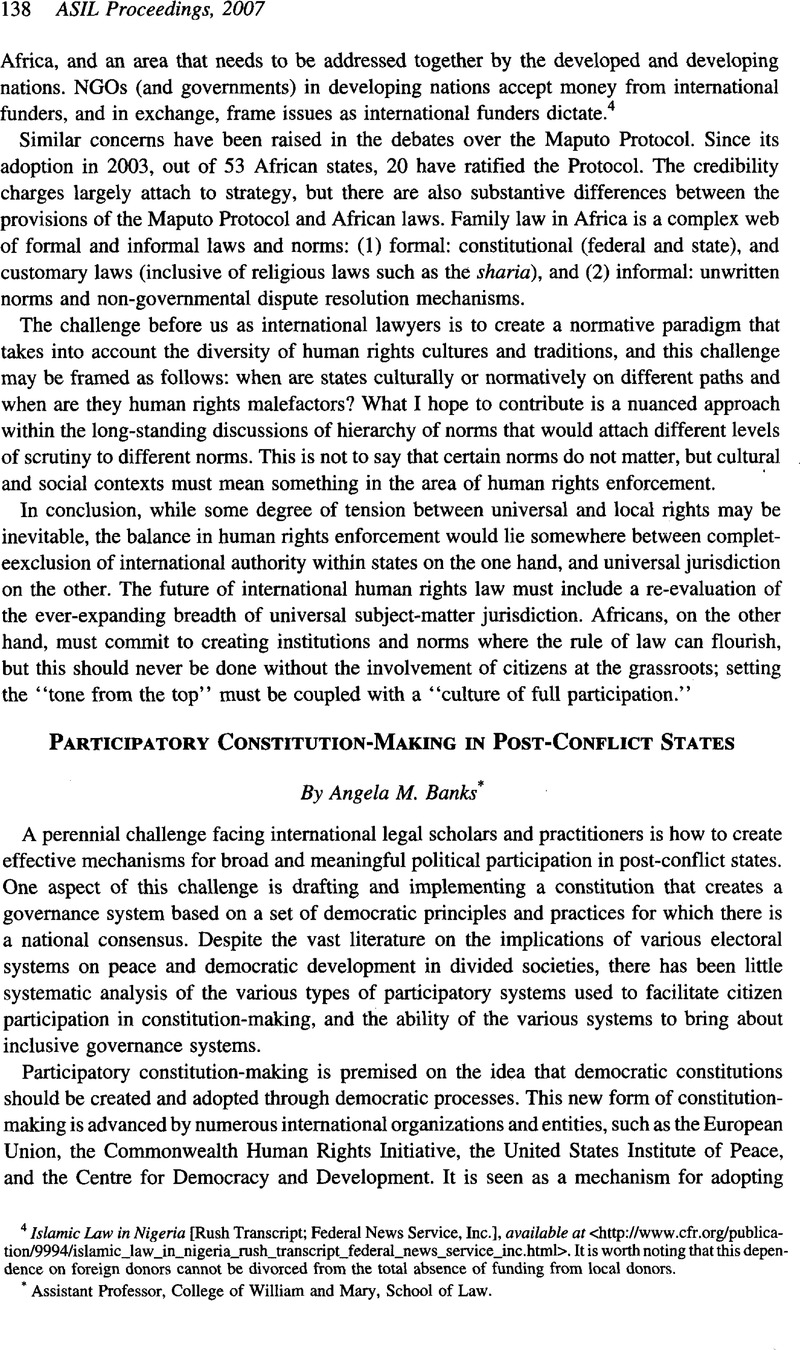Published online by Cambridge University Press: 28 February 2017

1 The LCC was the body responsible for drafting Rwanda’s new constitution.
2 Other reports indicate that attendance ranged from 200 to 2000 people. Int’l Crisis Group, End of Transition in Rwanda: A Necessary Political Liberalisation (ICG Africa Report No. 53) (Nov. 13, 2002).
3 Nat’l Unity & Reconciliation Comm’n, Retort of the National Summit on Unity & Reconciliation 53 (2002), available at <http://www.grandslacs.net/doc/2998.pdf>.
4 See Banks, Angela M. Challenging Political Boundaries, 29 U. Penn. J. Int’l L. (forthcoming 2007)Google Scholar for a more detailed discussion of Rwanda’s participatory constitution-making process and gender equity advocates’ roles within that process.